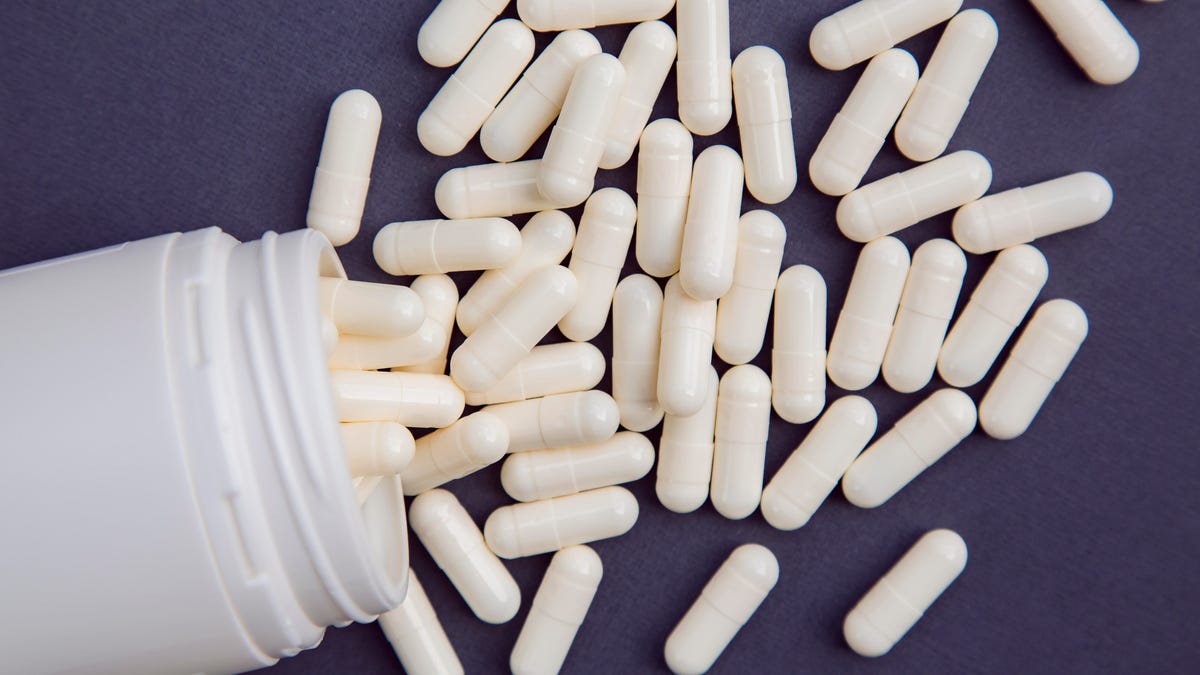Zinc and coronavirus: This supplement is no "silver bullet" for COVID-19
The origins of this misinformation and the science behind it.

Zinc is no "silver bullet" against COVID-19.
Around mid-2020, when the early stages of the pandemic had everyone in a panicked frenzy, it wasn't just toilet paper and bottled water flying off the shelves: Drugstore shelves were bare of supplements, too. One supplement people flocked to was zinc, thanks to claims that zinc could save you from the novel coronavirus.
The zinc craze happened because of an email that virologist and pathologist James Robb wrote to family and friends in late February advising them on common-sense ways to protect themselves from the novel coronavirus . He mentioned that they should stock up on zinc supplements, and when the email went viral the internet seized on this piece of advice, with some memes even calling zinc a "silver bullet against coronavirus."
Coronavirus updates
Robb reportedly never meant for the email to be shared widely, but his recommendation is likely rooted in scientific studies that suggest zinc supplements can help treat symptoms of the common cold. Here, we dig into the implications of those studies, and whether or not it's a good idea to use zinc to ward off the COVID-19 infection.
Read more: 8 coronavirus health myths, fact checked
The role of zinc in your body
Zinc is a nutrient that helps your immune system fight off infection. It also assists the body in making protein and DNA, and is important in infant and childhood development.
Read more: Should you take quercetin for immune health? What you need to know
The National Institutes of Health names oysters as the best source of zinc, and you can also get it from red meat, beans, nuts, whole grains and dairy.
If you suspect that you have a zinc deficiency, contact your healthcare provider -- this isn't something you can diagnose at home. Signs of zinc deficiency include hair loss, diarrhea, erectile dysfunction, poor wound healing and mental lethargy.
Fighting coronavirus: COVID-19 tests, vaccine research, masks, ventilators and more
See all photosZinc and the common cold
Researchers have performed several studies testing whether zinc supplements can help treat or prevent the common cold. A comprehensive review of 18 of these trials found that intake of zinc was associated with a reduction in the duration of patients' common cold symptoms, but not the severity. The chance of developing a cold, school absences and antibiotic prescription rates were also lower in the groups that took zinc, suggesting that it not only helps reduce the length of the cold but also prevents it.
The findings of this study weren't all good news -- people that took zinc also reported more incidences of bad taste and nausea than people who took a placebo. Still, the science suggests that zinc supplements sound pretty helpful in treating the symptoms of the common cold.
I won't get too technical with you, but if you're curious exactly how this happens you can check out this research paper. Essentially, zinc prevents the proliferation of the virus that causes the common cold by throwing a wrench into its RNA replication.
Zinc and COVID-19
It's important to not get too far ahead of ourselves when applying these findings to the coronavirus pandemic. COVID-19 is the name of the disease caused by SARS-CoV-2, which is part of the coronavirus family. While common colds can be a result of a coronavirus, they're usually caused by a rhinovirus. Rhinoviruses have nothing to do with a rhinoceros -- they're a family of viruses that are associated with upper respiratory tract infections.
So, we've established that zinc can be helpful in warding off symptoms of illnesses usually caused by rhinoviruses. But, that doesn't necessarily mean that zinc is effective against COVID-19 -- some scientists think there may be a link, but it's too soon to say for sure how zinc supplementation would ward off or reduce the severity of COVID-19.
But, we shouldn't leave these studies feeling hopeless. We don't know exactly how similar COVID-19 is to rhinoviruses, but it is possible that zinc could mess with the RNA replication of the novel coronavirus in the same way. The bottom line is that we just don't know yet.
Taking too much zinc
Don't run off to take as much zinc as possible quite yet. There can usually be too much of a good thing, and this applies to zinc supplements too.
For adults, the upper limit of zinc in oral supplements is 40mg per day, and for children it's 4mg per day. Cold-Eeze zinc supplements have about 13mg per serving, so you should be careful not to take more than two or three per day. If you've purchased another brand of zinc supplements, check how much zinc a serving packs.
Large amounts of zinc are toxic and may cause copper deficiency, anemia and damage to the nervous system. The Mayo Clinic advises people to avoid zinc nasal sprays, because many people suffer a loss of smell after using them.
If you really want to protect yourself from COVID-19, it's best to follow the measures already set in place by the WHO and CDC. These include social distancing, washing your hands frequently and not touching your face.

